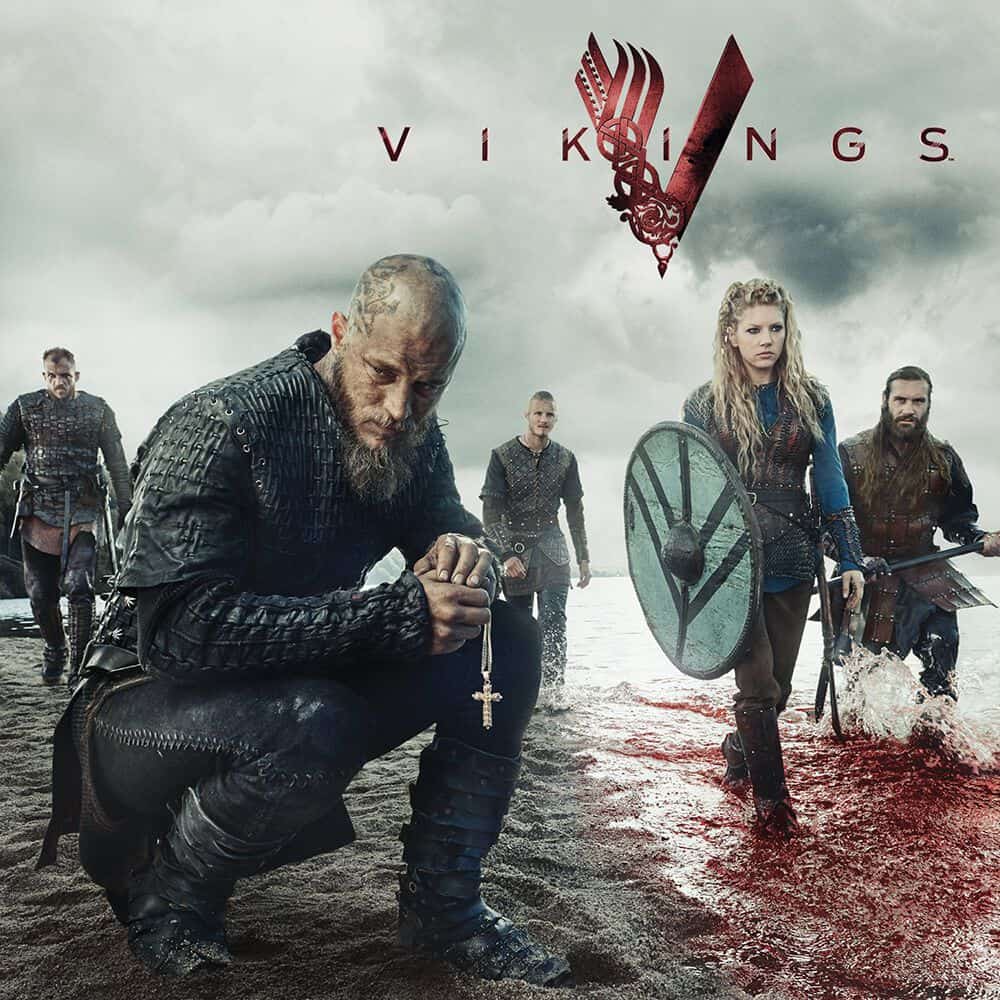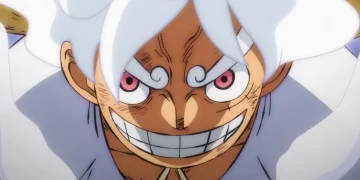Vikings is a show based on Nordic mythology, available on Netflix for streaming. The show’s pilot episode premiered on March 3rd, 2013, and it continued to air till December 30th, 2020. The show, written by Michael Hirst, has six seasons.
A sequel to the show, Vikings, was released on Netflix in 2022 called Vikings: Valhalla. The original series, Vikings, is a story about a mere farmer who grows up to become a great Viking warrior with a yearning to explore the far-off shores. The plot of the show has taken heavy inspiration from the legends of the Norse heroes, famous for raiding England and West France.
Travis Fimmel, known for his work in Warcraft and Tarzan, played Ragnar Lothbrok, the Viking who inspired the making of the show. Canadian actress Katheryn Winnick starred as Lagertha, the first wife of Ragnar Lothbrok and also the Queen of Kattegat.
Alexander Ludwig, famously known for his roles in Operation Christmas Drop and Lone Survivor, played Bjorn Lothbrok, son of Ragnar Lothbrok. He is also called Bjorn Ironside because of his immense strength. Clive Standon played the role of Rollo, Ragnar Lothbrok’s elder brother and the first-ever ruler of Normandy.
Gustaf Skarsgard plays Floki, Ragnar Lothbrok’s strange but close friend. The rest of the main cast of the show is extremely talented and important to the show. Vikings have received great positive comments from both viewers and critics.
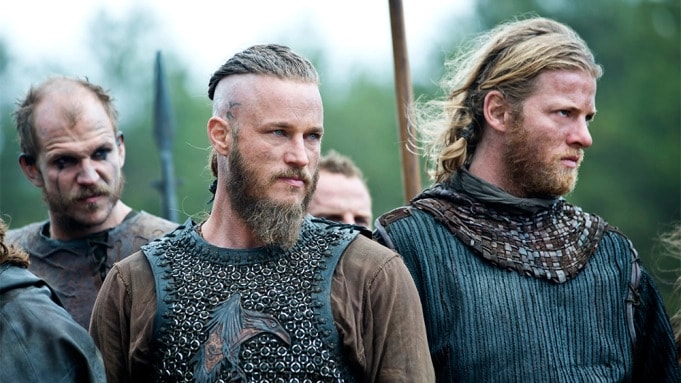
Vikings Storyline
The show is an Irish-Canadian production created by Michael Hirst, Morgan O’Sullivan, James Flynn, and a few others together. The show has a lot of its parts shot in Ireland. The story transports us to a mythical realm where Ragnar Lothbrok, a common farmer first and a mighty Viking after, lives.
We see how against all odds, Ragnar, with his good friend Floki, manages to conquer the rough waves of the north, thus setting the premise for future seasons. On the one hand, the show has gore and cruelty, but on the other hand, it has explored beautiful themes of love, respect, and loyalty. It is amazing to see how advancements and innovations shake the well-established foundations of civilization.
Through season two, we see Ragnar gain power little by little and how this power fuels his desire to set out to raid the west. Where in season one, all were hopeful, and there were ambitions and potentials to be explored, season two gets comparatively intense.
It brings tensions in relationships, changes in loyalties, and limits being crossed in the name of power. Ragnar and his relationship with his wife, Lagertha, experience major blows too. It prepares the viewers well for what is about to come in future seasons. Season three starts with Ragnar as the new Scandinavian King, a position that brings a burden of responsibilities along.
His relationship with Lagertha and his son, Bjorn, continues to suffer further. As a king with a massive thirst to venture out to the western waters and establish his Viking legacy in all the places he explores, he wanders towards the invincible and mythical city of Paris. He takes it upon himself to crumble its walls and write a new Viking history in the city.
Season three of the show ends with a very dramatic battle scene in Paris. Ragnar and his Norsemen win the war, but the King ends up very sick. Rumors of his death create uneasiness within the forces. Power struggles between Lagertha, Ragnar’s first wife, and Aslaug, the Queen, take place. The entire family has been pulled apart, each by its own desires and paths.
The season ends with Ragnar returning to his kingdom in Kattegat and seeing for himself all that went down in his absence. King Ragnar ends up passing away in Norway, and a civil war consumes the kingdom. Two sides appear, one of Queen Aslaug and her son, Ivar, and the other of Lagertha and her son, Bjorn. Ivar ends up taking the throne for himself.
Bjorn, much like his father, continues out towards North Africa. The civil war reaches a point where Lagertha’s army finds itself in a weaker position. Chaos takes over England with the passing of their King, and Iceland suffers due to family feuds. Floki, Ragnar’s friend, sacrifices himself to curb the chaos and the bloodshed.
Rollo, the Duke of Normandy, who had previously betrayed his family when he decided to stay in France, returns to his Viking roots, causing more disruption in the kingdom. Ivar, the new King, has decided to throw Lagertha and Bjorn out of his reign.
Ivar becomes a cruel King who thinks bloodshed is the way to solve all issues. A dark cloud takes over the kingdom. But it is obvious that after raging a full-blown war against his own family members, he is not going to get to rule peacefully.
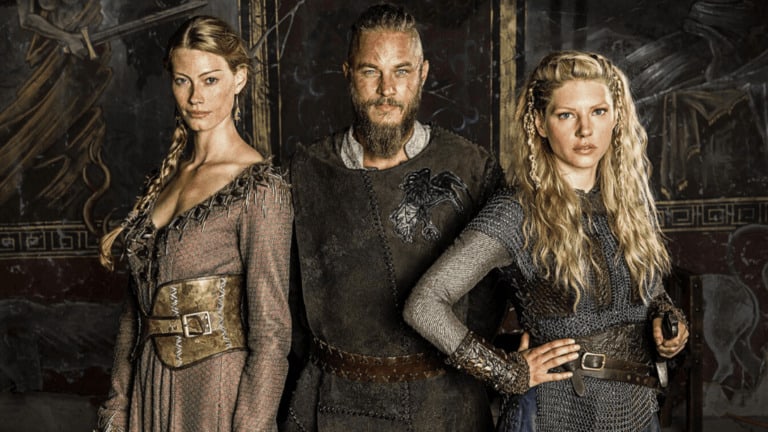
The season hinted heavily at how the other sons of Ragnar may join hands and become allies to get back at Ivar, who is convinced that he is the only invincible power. Floki, who had sacrificed himself to put an end to the kingdom’s crisis, still wishes to create a Viking colony, just like his friend, Ragnar. Bjorn Ironside becomes the King in the sixth installment of the show.
A great battle takes place between Ivar and Bjorn. The war leaves Bjorn extremely injured, and everyone seems unsure if he will rise again and sit on the throne. The confusion about his health gets cleared when he does end up dying after getting stabbed by Ivar’s sword. Kattegat finds itself without a ruler once again. A few short-termed Kings come and go. The Vikings still continue to capture and raid places.
Ivar remains alive till almost the end of the series, though his death seems near during the final few episodes. He ends up dying in a battle too. He dies in a way similar to the death of his father, Ragnar, and his brother, Bjorn.
Ubbe Ragnarsson (Jordan Patrick Smith) was the firstborn of Ragnar and Aslaug and one of the last-standing Vikings from their family. After the brutal death of his father and brothers and seeing so much happen within the kingdom, he decides to bring an end to the caveman ways of the Vikings.
Vikings Review
Vikings is a historical drama that has taken creative liberty to add to the actual history some fictional aspects. The show is heavily inspired by the history and myths around the Norse men. It starts off with Ragnar Lothbrok and him becoming the Viking leader of his tribe.
The show initially meant to be a miniseries, got great responses from the audience, which got it transformed into a full-length show. This led to the introduction of several characters and storylines into the show. It moved on from having Ragnar Lothbrok as its main lead to bringing in story arcs of his sons and eventually making it about them.
One thing that has to be praised right off the bat is Travis Fimmel as Ragnar Lothbrok. He looks completely devoted to his character, and how he has portrayed it is a treat for the eyes. The costumes, hairdo, and background set all look natural to the Viking period.
The show has everything from drama to mystery to love to brotherhood to violence and gore. The battle scenes and the way a lot of the show is shot can easily transport the audience to that timeline. The show has extensive battle scenes that seem very convincing.
Released around the same time as Game of Thrones, the two shows got compared quite a lot. But it seems foolish to just say that and ignore the Vikings. It is impossible to say which one is better, but on its own, the Vikings have a lot to offer too.
The show Vikings, in its early episodes, divulged into the Vikings’ culture, politics, and religion instead of just introducing the characters. One would expect the show to majorly comprise violence and cruelty and glorification of the same. But the viewers can expect a fully thought-out story, family dynamics, and a range of emotions.
The show has characters, not for the sake of it but ones with personality and deeper-thinking abilities. The show has done really well in showing the spiritual aspects of the actual Vikings, be it with their blood rituals or how they treat death.
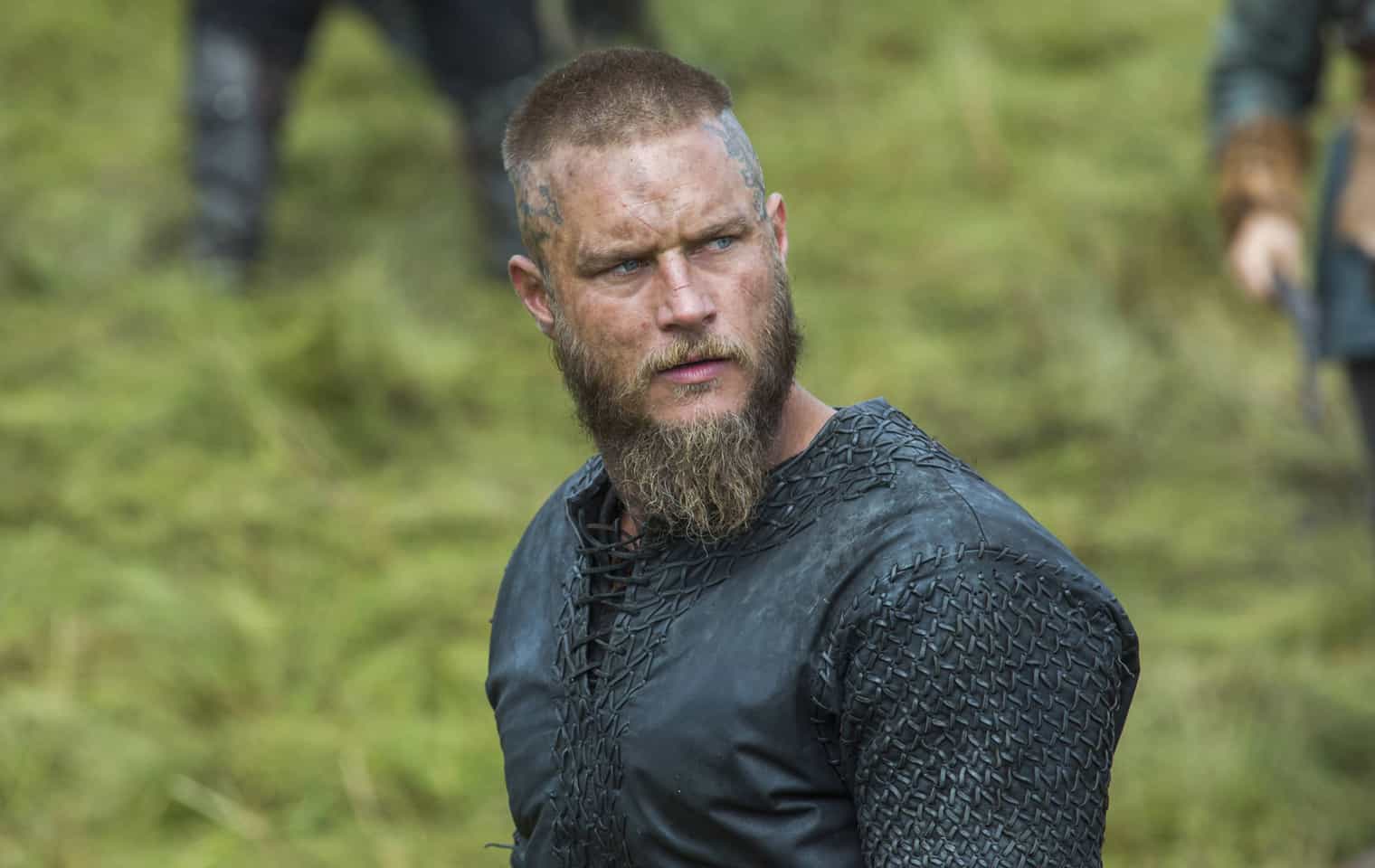
Katheryn Winnick, as Lagertha, Ragnar’s first wife, has done a convincing job portraying her character, considering what Lagertha had to go through. The show has a strong story and too many arcs to explore, but that does not stop the makers from holding back the gore and butchery. Much like Game of Thrones, if a character has to die, then they die.
Another noticeable thing that makes Vikings stand out from other similar shows is the fact that where on the one hand, the makers have released all forms of bloodshed and cruel ways of death, they have kept in check the nudity within the show. They visibly controlled the intensity of the explicit scenes included in the series.
One thing the show lacks is creating drama that arouses and maintains the attention of the viewers. At the end of the day, it is only a story of one relatively large family and all the disputes within. It lacks the exciting political disputes expanded over a large scale. As great as the performances by the actors may be, they seem to lack complexity and depth.
Also, considering that the show is about one family’s expeditions, it does not feel very thrilling to watch. The cinematography within the show is exemplary, but there is only so much one can watch just for the aesthetics. It adds to the disappointment further when one realizes that the makers took inspiration from different timelines altogether to put this show up and to run.
The lack of complex storylines, obviously, does not necessarily have to be a bad thing considering it makes it easier to follow and watch the show. The show has some of the most beautiful cinematic scenes. It has a strange beauty to it that gives it that cold, chilling Vikings energy.
Another factor that did not play in favor of the show was writing Travis Fimmel’s character, Ragnar Lothbrok, off. The entire show was built around him, and he was the leading man for four consecutive seasons. His character in the show had that gravitas and charm that got many people to even watch Vikings in the first place. The story spends time setting grounds for him to finally be able to take a stand and become a Viking leader, and then he spends time expanding his legacy, only for him to die.
As necessary as his death was, it still feels like a waste of a really interesting character. All was fine till the sons of Ragnar were introduced, but the constant fight between them for who was going to ascend the throne and take their father’s place to lead the kingdom, and to make this the story of the entire show just felt like a stretch. And exhausting too.
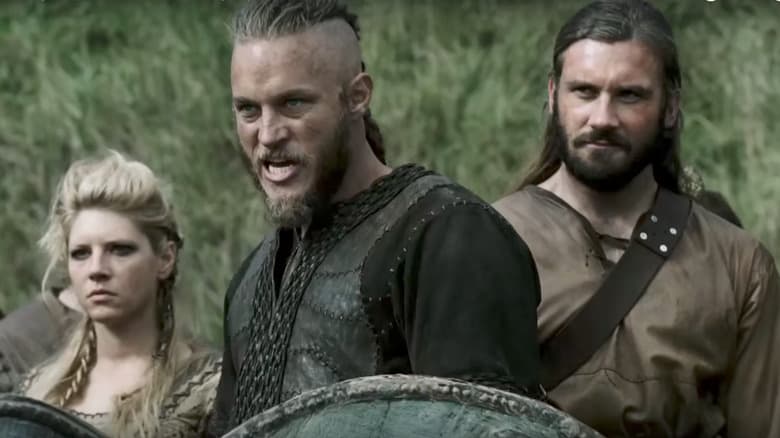
Our Verdict
The show has great battle scenes, and it seems the makers realize that too. But the thing is that great things look good on television only if shown once or twice. Vikings could make a battle compilation and release it separately as an episode. That is how many battle and fight scenes the show has.
The show is a combination of notable characters and beautifully shot battle scenes, but it looks lost with where it wants to go with the story direction. It received heavy criticism from historians for manipulating and distorting history, but that can be let go as taking a creative license to make historical art.
All said and done. The show is not all that bad. The characters are great, and so is the cinematography. Travis Fimmel has done justice to his character, and so has Katheryn Winnick. The ending also does not seem terrible, considering what Game of Thrones did to its fans. Overall, the show has done a pleasing job of creating a Vikings universe for its audience.
Our Rating: ⭐ (3.5/5).
Also Read: 45 Best Drama Series Like Vikings: For Fans of TV series

